Mangaluru: The 11th graduation day of Bearys Institute of Technology (BIT) and 4th graduation day of Bearys Enviro-Architecture Design School (BEADS) was held at the Bearys Arena, Bearys Knowledge Campus near Mangalore University here in the city on Saturday.
The ceremony began with an inaugural address by Dr. Jayaraj Amin, Vice Chancellor of Mangalore University. Prof. (Dr.) M Abdul Rahiman, former Vice Chancellor of Kannur and Calicut Universities, delivered the graduation day address.
Dr. Sampath JM, Leading HR Evangelist, Management Thinker, Leadership Coach and Angel Investor delivered the keynote address during the event that was presided over by Syed Mohamed Beary, Chairman, Bearys Academy of Learning.
Ar. Sandeep Jagadeesh, Founder Partner, Architecture Paradigm, Bangalore and Rizma Banu, Co-Founder Atom360, Bangalore aand FOSS Activist (BIT Alumni) were also present as the guests of honor during the event.
In his address, Dr. Jayaraj Amin extended congratulations to the graduating students, acknowledging their accomplishments. Emphasizing the importance of self-recognition, he urged the graduates to take credit for their success, recognizing the dedication, hard work, and perseverance that brought them to this momentous occasion.
Dr. Amin went on to highlight the pivotal role played by the educational institution and the unwavering support of parents in shaping the academic journey of the graduating class. He stressed that while individual effort and determination are fundamental to success, it is crucial not to overlook the invaluable contributions of the institution and the unwavering support of parents.
During his address, Prof. M Abdul Rahiman stressed on the role of empathy as a factor for success. He asserted that genuine understanding and consideration for others, commonly referred to as empathy, stand out as a pivotal factor in achieving personal and professional accomplishments. Prof. Rahiman conveyed to the audience that success is not merely a result of luck or chance but is a result of meticulous attention and hardwork, demonstrating that it is the deliberate and focused efforts that pave the way for triumph.
Delving into the example of Syed Beary, Prof. Rahiman shed light on Syed Beary’s journey to success. He stated that Syed Beary's accomplishments are not arbitrary but are rooted in a clear vision, well-defined mission, and steadfast objectives. By articulating and adhering to these principles, Syed Beary has successfully steered his institutions to great heights, he said.
In his keynote address, Dr. Sampath JM spoke about the nature of graduation as a crucial step in students' lives. He highlighted the evolving landscape with Artificial Intelligence and Generated Intelligence, emphasizing the importance of becoming creators of knowledge. Dr. Sampath urged graduates to define their purpose, encouraging introspection about personal values. He stressed the significance of taking a stand for what is right, assuming responsibility for actions, and cultivating a personal vision to avoid merely supporting someone else's.
In his presidential address, Syed Mohamed Beary congratulated the graduating students and shared wisdom with them, emphasizing the virtues of truthfulness, trustworthiness, and compassion in all endeavors.
He urged the audience to move beyond job-seeking and embrace entrepreneurship as a vital element in the contemporary world, cautioning against a purely materialistic approach to work.
Beary shared valuable insights with aspiring entrepreneurs, advising them not to work solely for monetary gain and stating that whatever is meant for us will come to us as everything is god-ordained. He added that we should worry less about materialistic pleasures and work towards creating societal happiness.
He expressed optimism about India's role in the 21st century, and added that the 21st century belongs to India. He also encouraged the young graduates to choose fields like civil services, defence and other similar professions where one is able to selflessly contribute to the society and societal happiness. He also urged the students to refrain from activities that are anti-country in nature and bring bad name to the country stating that India has given us in abundance hence it is time that we as good Samaritans give it back to the country.
Speaking about the Artificial Intelligence taking over all the professions, Syed Beary highlighted limitations of artificial intelligence underscoring irreplaceable value of the human touch in various aspects of life.
Ar. Sandeep Jagadeesh and Rizma Banu also addressed the gathering during the event on “Threshold in Architecture” and “Life Beyond Job” topics respectively.
Mohammed Aashiq, who recently became the first chef from South India to win the MasterChef India competition was also felicitated during the event.
Graduating students were presented certificates and were later administered oath by Dr. Aziz Musthafa. As part of the event, a Memoir was unveiled by Syed Mohamed Beary and other distinguished guests.
Alumni and PhD awardees of BIT were also felicitated during the event while the best outgoing students and academic toppers of all the departments were handed mementos by guests.
Dr. S I Manjur Basha, Principal of BIT welcomed the guests while Ar Khaleel Sheikh, Principal of BEADS delivered vote of thanks.
Principal of BIT Dr. Manjur Basha, Principal of BEADS Ar. Khaleel Razak, Principal of Bearys Institute of Emerging Sciences (BIES) Dr. Aziz Mustafa, Director of BIT Polytechnic Dr. Prithviraj and HODs of all the departments including Dr. Abdullah Gubbi, Prof. Sinan, and others were present on the dias.
Setting up Bearys Global University our aim : Syed Beary
We are entering the fields of emerging sciences and also medical sciences. Eventually we will be setting up Bearys Global University for Societal Happiness. Thas is our aim, said Syed Mohamed Beary.
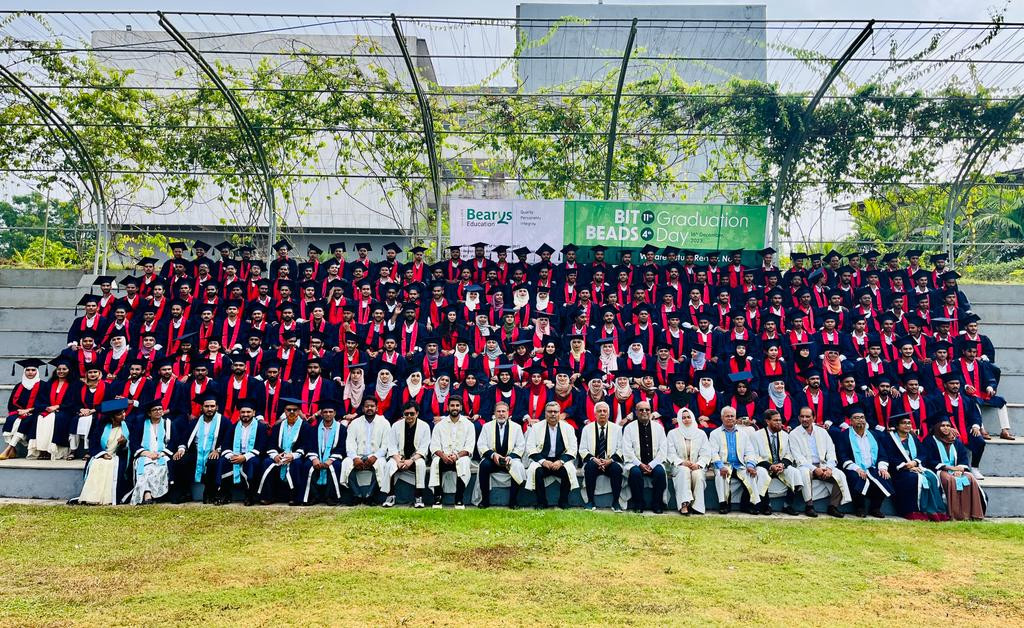
.jpeg)
.jpeg)
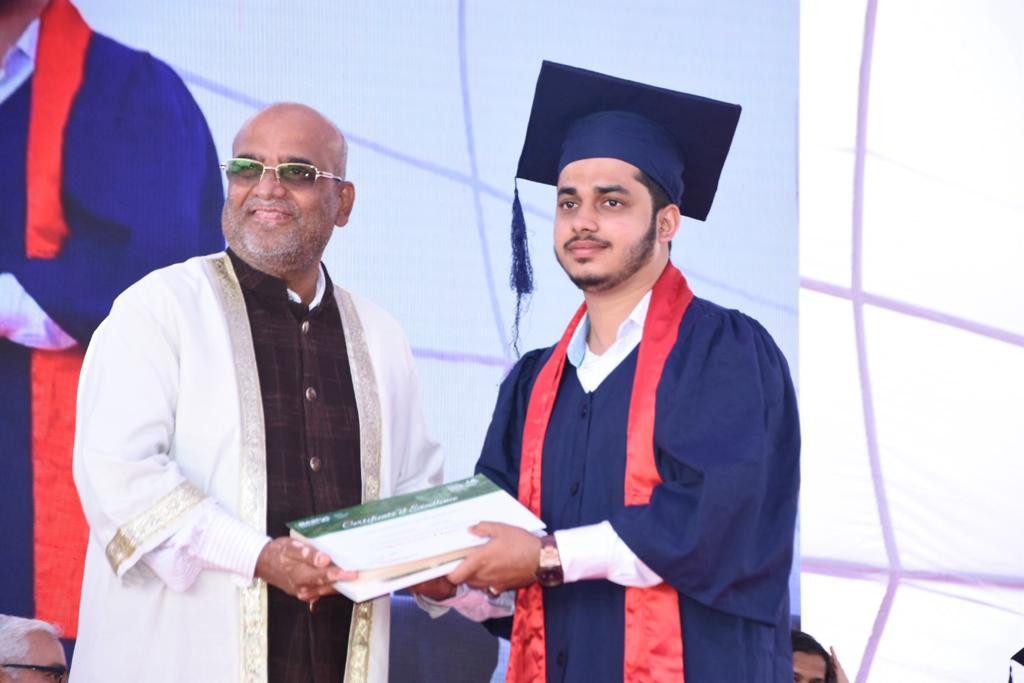
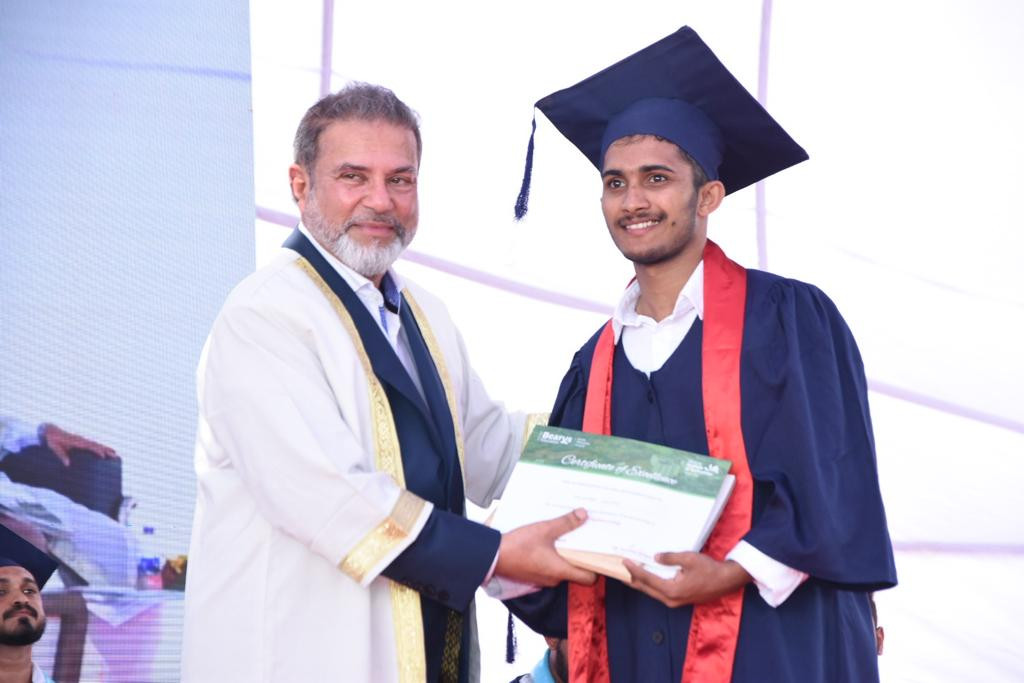
.jpeg)
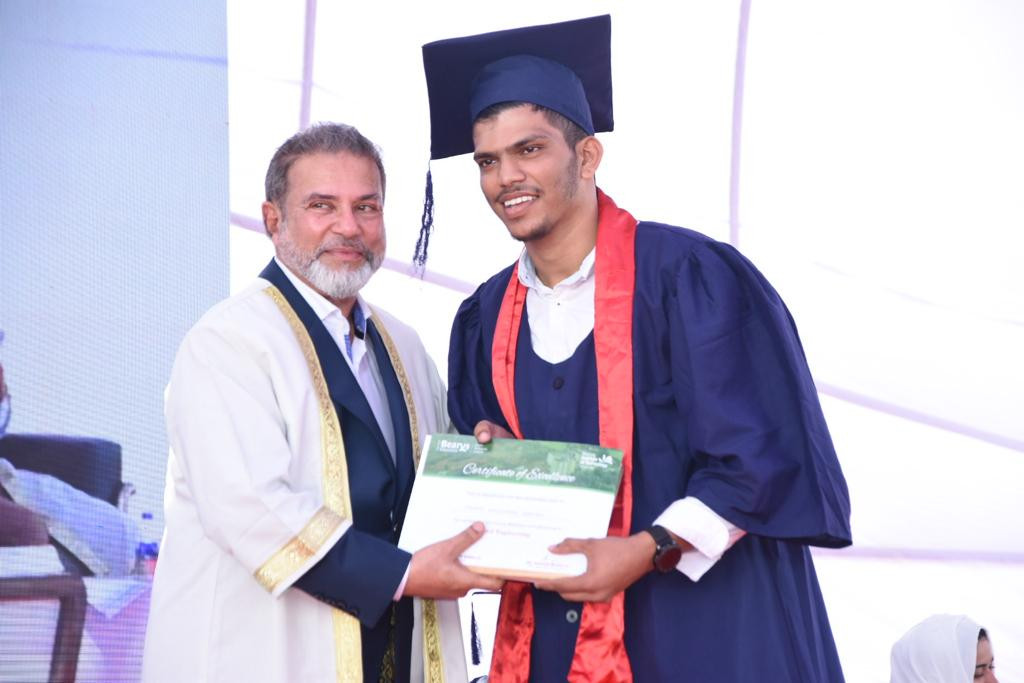
.jpeg)
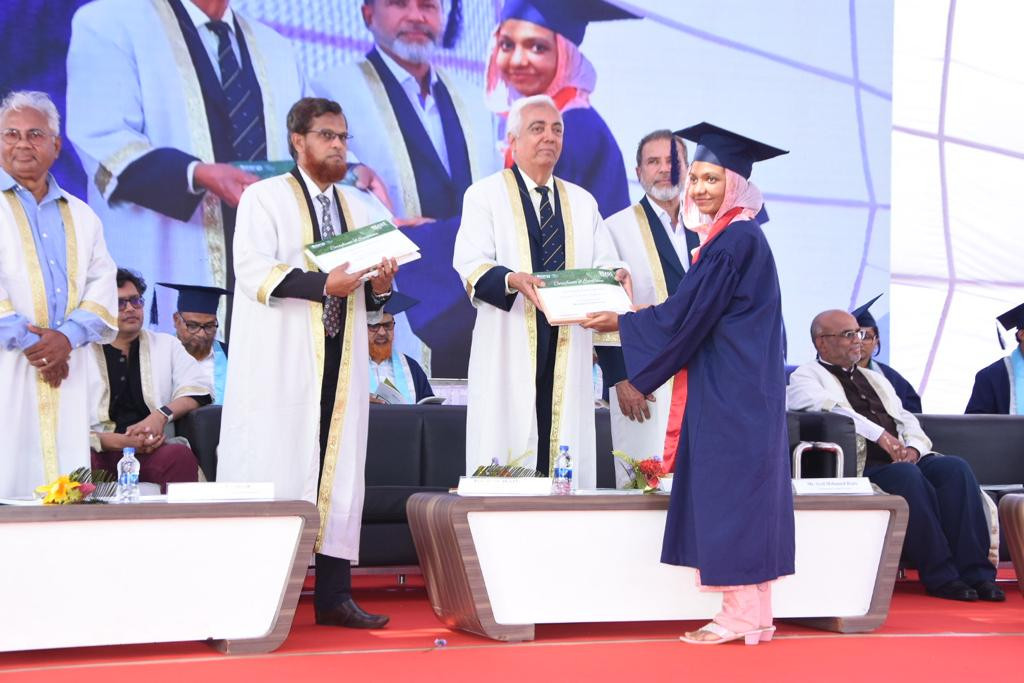
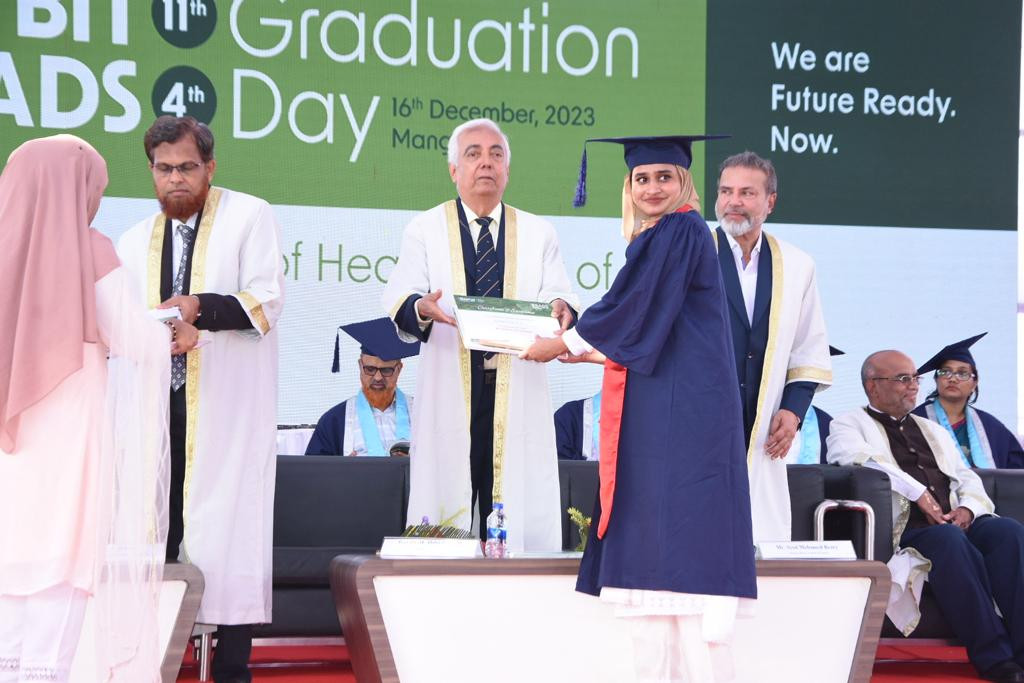















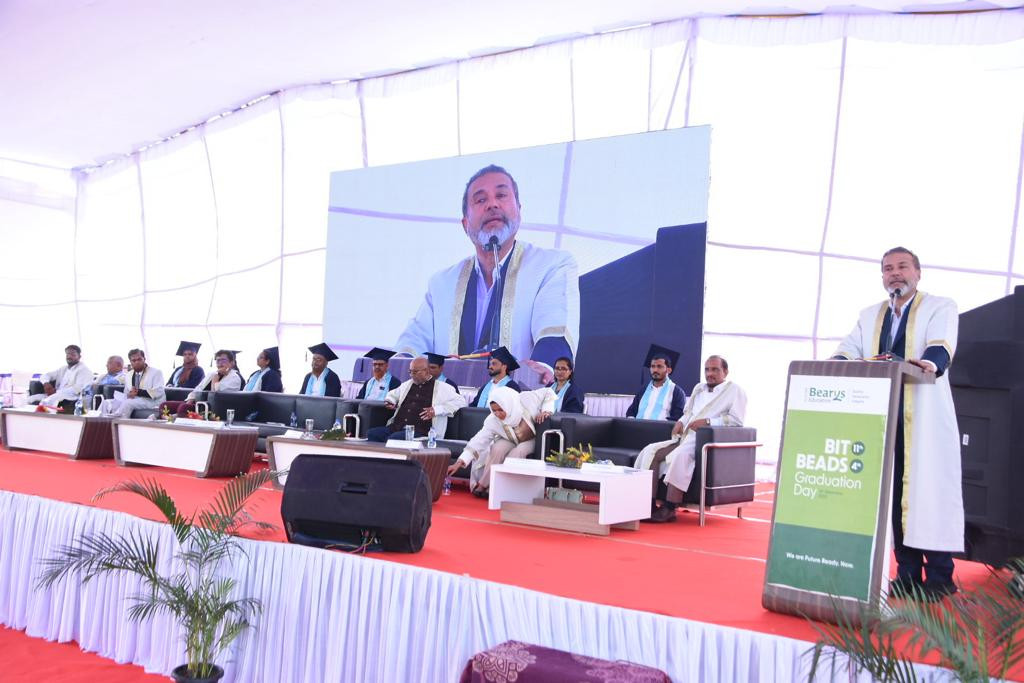
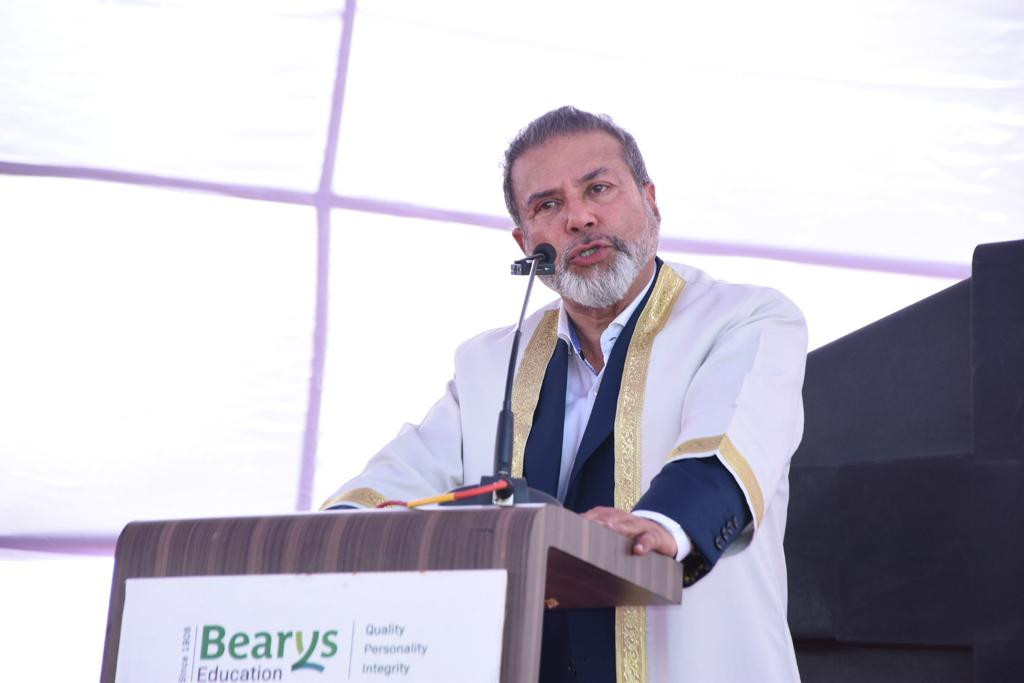
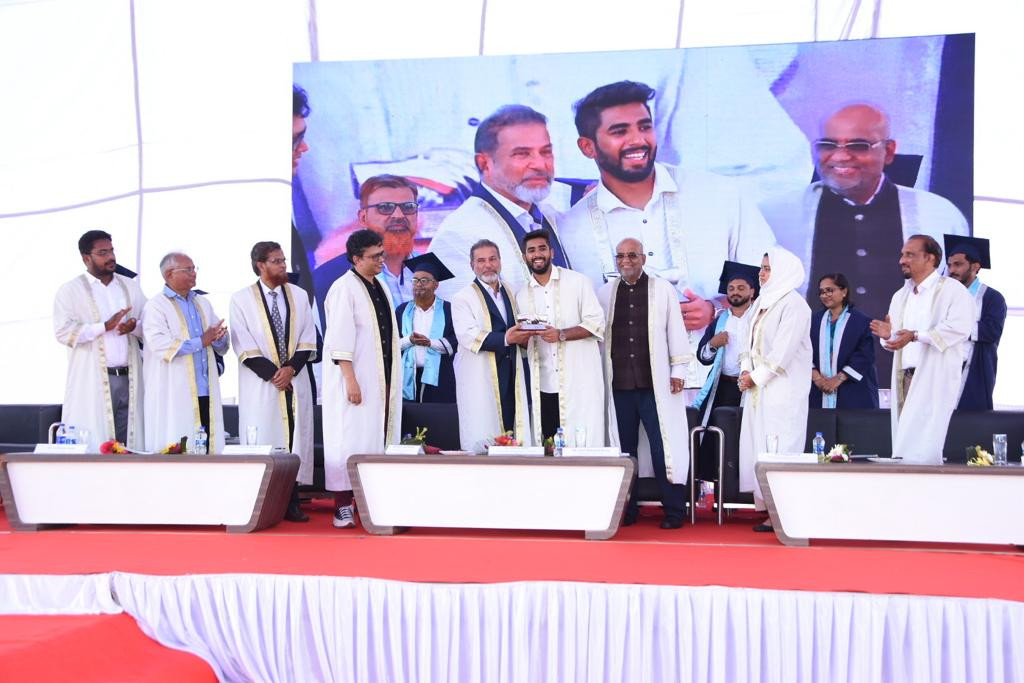

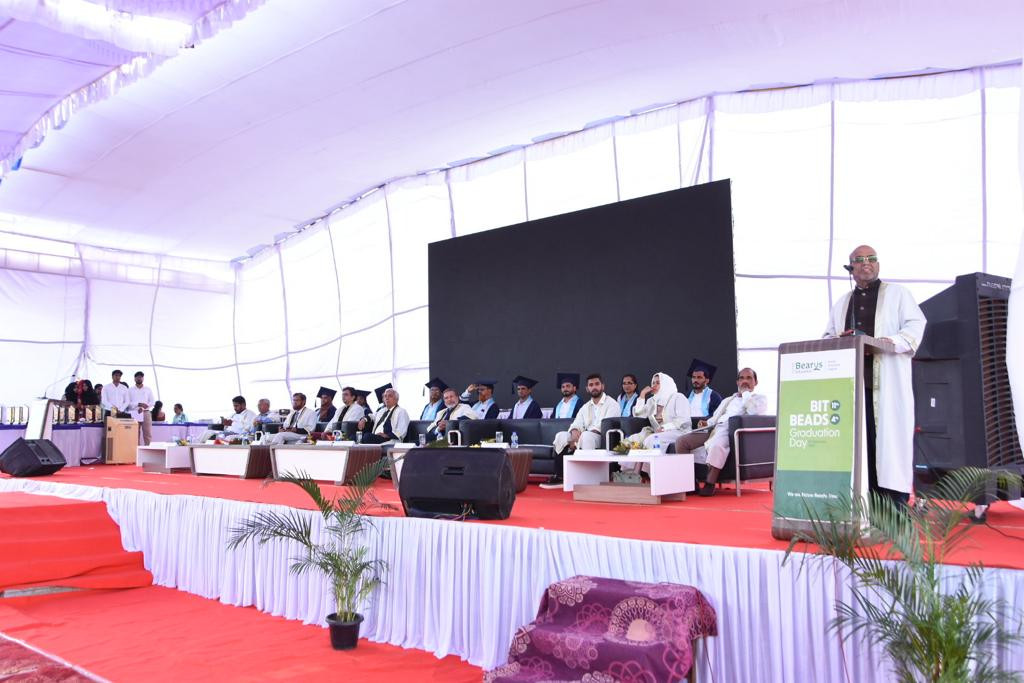

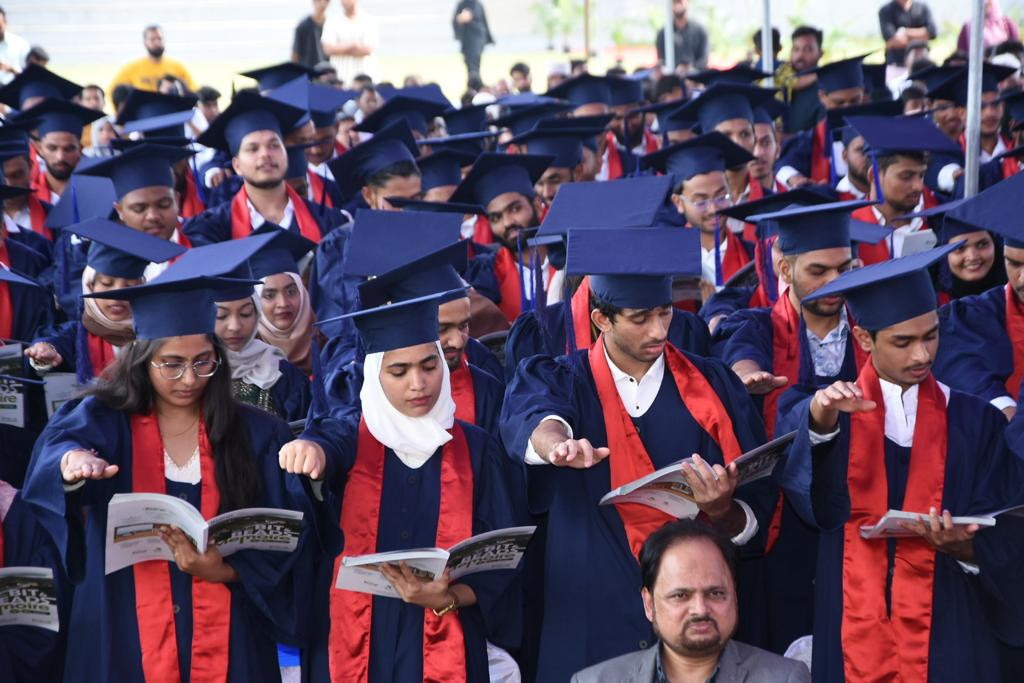
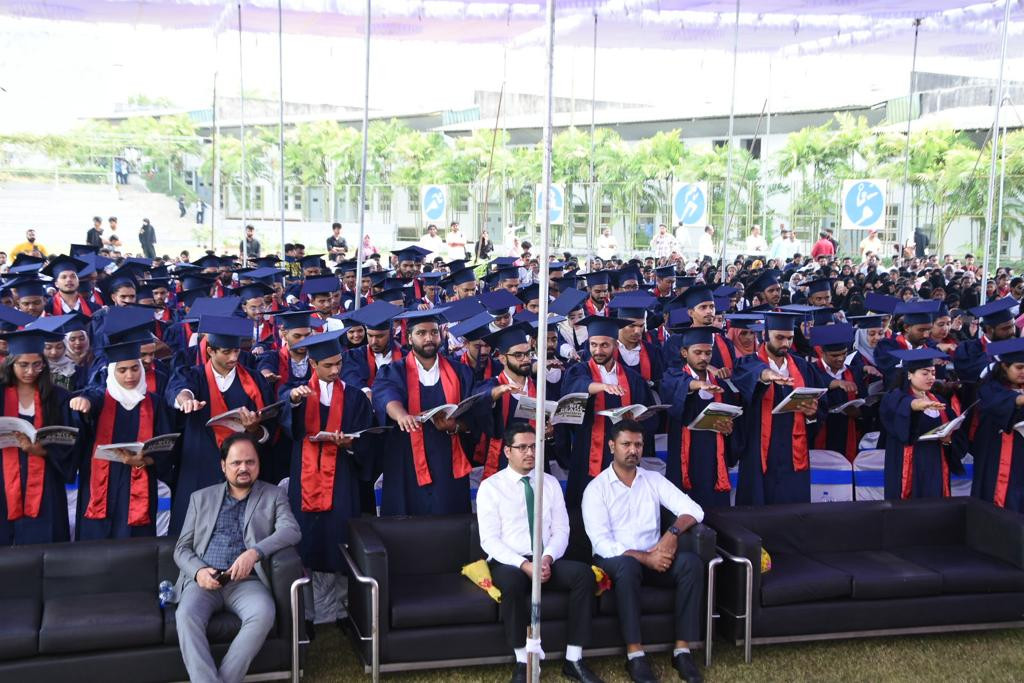
Let the Truth be known. If you read VB and like VB, please be a VB Supporter and Help us deliver the Truth to one and all.
Lucknow (PTI): The Uttar Pradesh Congress on Wednesday staged a statewide protest demanding a fair and transparent inquiry into the FIR lodged against Swami Avimukteshwaranand Saraswati and those who filed the complaint against him.
In a statement issued here, the party said memorandums addressed to Prime Minister Narendra Modi were submitted through district magistrates in all districts of the state.
Uttar Pradesh Congress spokesperson Manish Hindvi told PTI that the memorandums were handed over through the district administration in all 75 districts.
In the memorandum, the party alleged that Saraswati and his disciples were "unnecessarily harassed and humiliated" by police on the occasion of Amavasya and were prevented from taking a ritual bath (at the Magh Mela). It further alleged that some disciples were manhandled and taken to a police station.
The memorandum also claimed that an FIR was later registered against Saraswati, his disciple Swami Mukundanand Brahmachari and several unidentified persons in a sexual harassment case. It termed the case a "conspiracy" aimed at tarnishing the seer's reputation.
Citing Articles 25 and 26 of the Constitution, the memorandum stated that these provisions guarantee religious freedom and the right of religious denominations to manage their own affairs.
It described the position of shankaracharya held by Saraswati as "one of the highest spiritual posts in Sanatan tradition" and alleged that the entire episode appeared to have been "orchestrated in a planned manner".
"We request that the background of the persons who got the FIR registered be investigated in a transparent manner by a retired high court judge and strict action be taken against them," the memorandum said.
It also sought a "fair and transparent probe" into the allegations levelled against Saraswati so that the truth could be established.
Earlier, Uttar Pradesh Congress president Ajay Rai had told reporters in Varanasi after meeting Saraswati that the party stood firmly with him.
The Congress said it would continue to press for an impartial inquiry into the entire episode.
On February 21, an FIR was lodged in Prayagraj against Saraswati and his disciple Mukundanand Brahmachari on charges of sexually abusing two persons, including a minor, over the past year at a gurukul and religious congregations, including the recently concluded Magh Mela.
Days after he was booked, Saraswati had said on Monday that he would not oppose his arrest and asserted that the "fabricated story" would be exposed sooner or later.
At a press conference on Wednesday, Saraswati alleged that criminals rule in Uttar Pradesh, level allegations and influence investigations, as he denied having any contact with the two persons for whose alleged sexual abuse he has been booked.

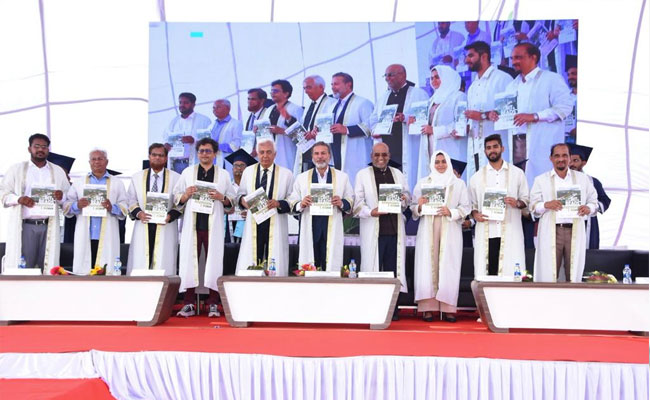

_vb_77.jpeg)
_vb_00.jpeg)
